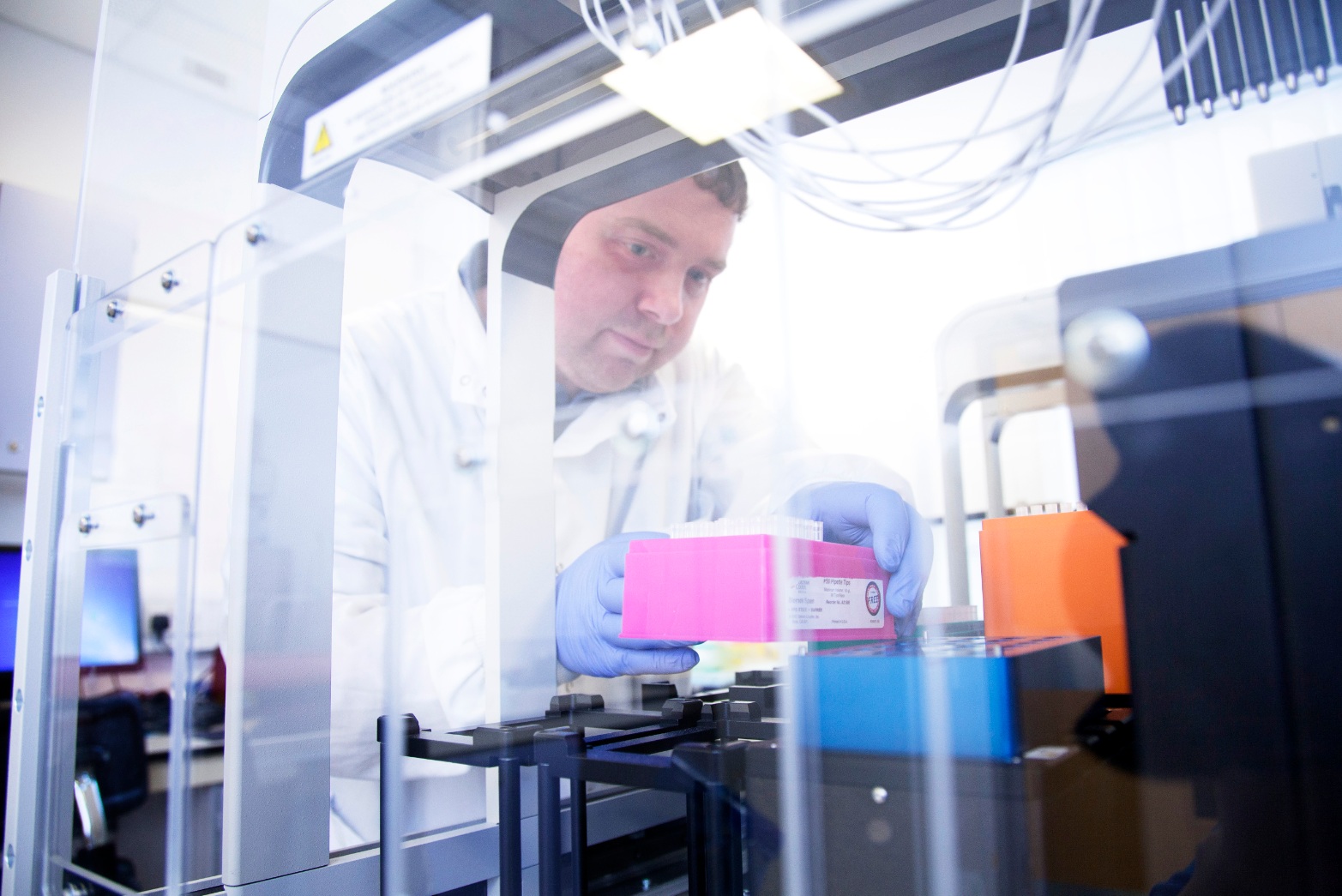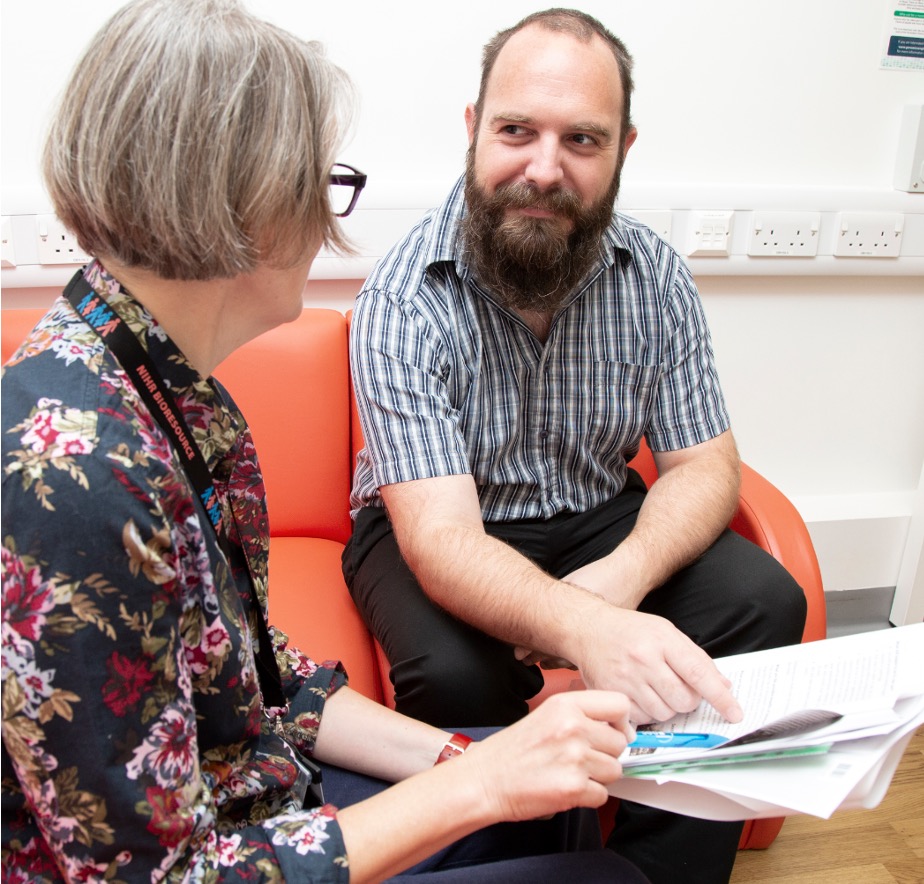Genomic Medicine


This theme’s focus:
- Modernisation of local and national computer infrastructure to drive development of diagnostic and early detection tools for rare disorders and cancer
- To understand whether genetic findings are directly causing a patient’s clinical symptoms
- To perform new clinical trials and studies in patients to show the benefits of using genomics in everyday healthcare through our NHS Genome Medicine Services
Inherited genetic diseases are individually rare. However, rare diseases are collectively common with 1 in 17 people in the UK estimated to be affected by a rare condition at some point in their lifetime. Genetic disorders are a major cause of learning disability and other lifelong conditions. Through activities with patients and their families, we know that identifying genetic causes of undiagnosed disorders is key to supporting affected families, removing diagnostic uncertainty, and helping with health and social management. Cancer is also a disease that affects the genetic material in our cells. However, the genetic changes or mutations seen in a cancer are acquired through life, rather than inherited.
In both rare inherited disease and cancer, the field of genomics has grown at an extraordinary pace. Through the 100,000 Genomes Project, a clinical research project which began in 2013, it has become possible to recruit NHS patients, make new discoveries about their genetic disorders, and aid clinical diagnoses in an unprecedented way. Following the completion of that project in 2018, the NHS Genomic Medicine Service was created, which aims to drive adoption of genomics into everyday healthcare.
We recognise that we are at a pivotal moment in UK genomics. We anticipate a future where data will become increasingly abundant in genomics research and in healthcare. We must therefore find ways to ensure that we can work with these waves of data, explore how to interpret new findings accurately and efficiently, and demonstrate that genomic findings make a positive difference to patient’s lives.
To do so, we will bring together the academic expertise in laboratory research and data science in Cambridge with the new NHS genomic network of Cambridge, Nottingham, Leicester, and Norfolk, to create a unified theme called Genomic Medicine. Our purpose is to accelerate discovery genomic research towards clinical application as rapidly as possible. We will achieve this through the following strategies:
- First, we will modernise local and national computer infrastructure and improve how to do data research
- Second, when we make new genetic findings, it is important to understand whether they could be directly causing a patient’s symptoms. We will develop research techniques to link genomic findings to a patient’s disease
- Third, we will perform new clinical trials and studies in patients to evaluate the benefits of using genomics in everyday healthcare through our NHS Genome Medicine Services.
There are few places in the world where genomic innovations can reach patient care quite as swiftly as in the UK. We believe that we can capitalise on our national genomic network, which in the East of England alone encompasses nearly 10 million people with diverse ethnicities, to advance new knowledge towards patient benefit as rapidly as possible.
Here are some of the areas we are researching:

Computational Genomics
To equip ourselves for a data-driven future, we will establish interconnected data research infrastructure with patient/public involvement from inception to implementation.
Our Secure Data Environment, called CYNAPSE, will act as the link between innovative research work and the clinical domain. It will also be able to “talk” to other large research cohorts (groups) while maintaining data privacy of the highest order.
Through improved infrastructure, we will be better able to:
- Use statistical/computational methods to develop stratification/diagnostic/early detection algorithmic tools from data across multiple BRC themes and facilitate industry-associated research
- Increase discovery of new disease-causing mutations in genomic data
- Develop, implement, and improve clinical interpretation tools such as HRDetect, CardioBoost, DECIPHER for rare disorders and the Steiner cancer analysis tool. These tools can be used to accelerate how we interpret genomic data, to serve as training modules and help educate the workforce better and faster.

Functional Genomics
To understand whether newly identified mutations are causing disease, we will use human cellular models and functional genomic techniques and:
- Establish functional genomics capacity with expertise in CRISPR-based modifier screens in human neurons
- Develop diagnostic clinical-grade assays
- Perform deep genotype-phenotype characterisation
- Integrate functional assays with quantitative patient phenotyping in neurodevelopmental disorders.

Translational Genomics
To convert any assay (test) or algorithm into a medical application, clinical value must be demonstrated through studies in patients.
Genomic Medicine provides pan-regional patient recruitment through the East GMS, stretching from Great Yarmouth, The Wash and The Fens in the East, through to Nottingham and Leicester to the West.
Some of our projects include:
- Clinical trials for precision medicine
- Partnerships with industry to enable identification of druggable pathways
- Development and application of patient-facing tools such as applications in hand-held devices
- Technological translation through the Stratified Medicine Core Laboratory (SMCL) incubator in association with the East GMS.

